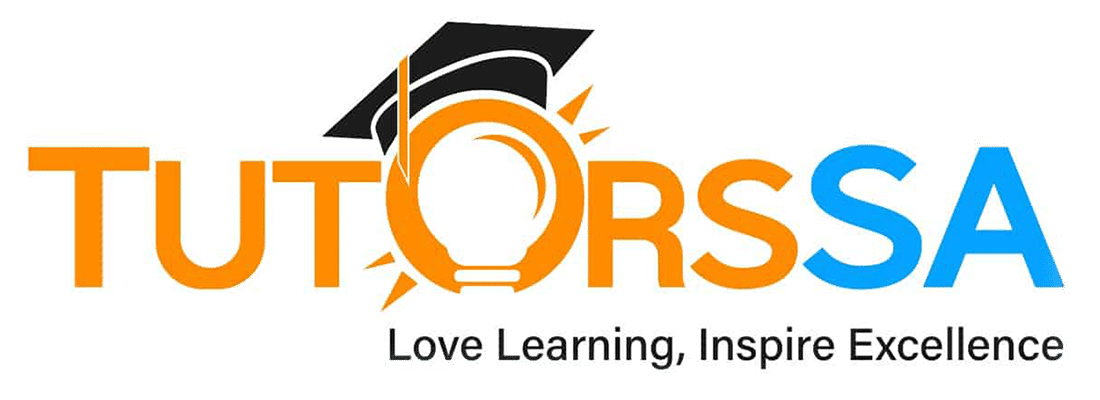In recent years, homeschooling has become a popular educational alternative for many families in South Africa. This trend reflects a shift towards more personalised and flexible learning environments tailored to each child’s unique needs and circumstances.
Whether you are a seasoned homeschooler or just beginning to explore home education as an option, this 5-tip Tutors SA Guide offers valuable information to help you provide the best education for your child at home.
1) Get All Your Ducks in a Row
Homeschooling in South Africa
Over the recent years, homeschooling has gained popularity as an alternative to traditional schooling in South Africa. South Africa’s diverse society makes homeschooling appealing since it allows the incorporation of cultural, religious, and linguistic elements into the curriculum.
As a recognised education medium, some processes must be actioned when homeschooling your child.
Legalities of Homeschooling:
Parents must comply with legal requirements to guarantee their children receive a quality education.
Registration Process:
The process of registering for homeschooling in South Africa is essential but straightforward.
Parents must apply to the provincial education department, providing details regarding their educational plan, resources, and assessment methods.
Compliance with the Department of Education:
It is crucial to comply with the standards set by the Department of Education. This implies that the curriculum followed at home should align with the national educational goals and objectives.
2) Life is All About Balance

The Benefits of Homeschooling:
Tailored to the Individual: The foremost advantage of homeschooling is the ability to provide tailored education that can play to a child’s strengths, embracing additional activities within a flexible learning schedule.
Individual Attention: Homeschooling enables educators to identify and address each student’s strengths and weaknesses.
Flexibility with Hobbies: Homeschooling integrates a child’s interests into their daily learning, creating a personalised educational experience that develops a well-rounded student.
Adapting to a Different Lifestyle:
Homeschooling offers flexibility for families with unique lifestyles or schedules. Children learn accountability and responsibility by adapting to non-traditional ways of learning.
Supportive of Passions: Families can create a learning schedule that aligns with their circumstances, allowing children to pursue their passions with a flexible curriculum.
Encourages Independence: A structured home learning environment fosters independence and responsibility in students, allowing them to take ownership of their educational progress.
The Shortfalls of Homeschooling:
As discussed above, homeschooling has multiple benefits; however, there are a few shortfalls that should be addressed.
Limiting Factors:
Limited Social Interaction: Compared to traditional school settings, homeschooling may limit a child’s opportunities for regular engagement with peers.
Limited Access to Specialised Equipment: Homeschooled students might not have easy access to specialised laboratories, libraries, or sports facilities that are often available in conventional schools.
Making Necessary Adjustments:
Difficulty Adjusting to Other Learning Environments: Homeschooling environments can potentially pose challenges for students who transition back into regular schools or higher education institutions that offer stricter scheduling.
Increased Reliance on Technology: Parents might find it challenging to effectively teach advanced subjects or those requiring specific expertise, often leading to a reliance on online resources and facilitation.
Balancing Roles: Parents often struggle when juggling educator and caregiver roles.
3) There’s No Place Like Home
Effective Learning at Home
Creating a conducive home learning environment is a critical aspect of successful homeschooling. This environment goes beyond having a dedicated study space; it fosters a holistic approach to education.
Design a Learning Space:
Designate a specific home area dedicated to learning. This space should be well-lit, quiet, and free from distractions.
It’s important to equip this area with the necessary supplies and resources, such as:
- Spacious desk
- Ergonomic/comfortable seating
- WiFi access
- Readily available stationery
- Adequate storage for books and materials
Personalising this space can also make it inviting and stimulating for the learner.
Make it a Safe Space:
Homeschooling can provide a harmonious, adaptable, and enriching educational experience tailored to each learner’s needs.
Homeschooling can solve everyday challenges in traditional schooling, such as:
- Bullying
- Inaccessibility for children with different physical and learning abilities
- Inflexible academic schedules
In a home environment, educators can provide a safe, nurturing space where learners are protected from the social pressures and anxiety that can occur in conventional school settings.
This safety and comfort can significantly enhance a student’s ability to focus and engage in learning.
4) Ask for help
Additional Resources
In the case of homeschooling, incorporating additional resources into homeschooling offers numerous benefits to ensure effective learning, one being the involvement of a tutor/facilitator. In addition, in the modern education landscape, technology plays an indispensable role, particularly in the context of homeschooling.
Engage with Tutors
When a student has difficulties with their academic performance at home, parents may find it challenging to provide the necessary help. This is where a tutor can be helpful, as they can provide one-on-one attention and personalised instruction.
Tutors can aid home education by:
- Introducing new approaches and techniques
- Identifying areas where the student may need extra support
- Creating personalised lesson plans for your child
- Prepare your child for any future academic challenges
Incorporate Online Resources
Online resources can assist students who need extra help in certain subjects.
Technology also allows children to learn at their own pace, review challenging concepts, and delve deeper into areas of interest. By taking advantage of the vast online resources available, students can broaden their knowledge and skills and ultimately achieve academic success.
5) You Are Not Alone
Community Engagement
The journey of homeschooling can be challenging without proper support systems.
In South Africa, where homeschooling is gaining momentum, tapping into a network of like-minded families and groups can significantly enhance the homeschooling experience.
Build a Support System:
A support system is crucial for homeschooling families.
These networks offer a platform for sharing resources, experiences, and advice; these communities can be invaluable in navigating home education’s initial challenges and uncertainties.
Homeschooling Communities:
Connect with other homeschooling families to build a support network. Join community groups, attend events and workshops, and engage with others to share resources and teaching strategies.
Community groups can also provide opportunities for children to socialise and learn in groups, while parents can find encouragement and a sense of belonging.
Homeschool with Tutors SA
Homeschooling in South Africa offers a unique and enriching educational path that requires dedication, flexibility, and creativity.
We are here to support you if you are considering homeschooling in South Africa.
With a wide range of resources, experienced tutors, and a supportive community, Tutors SA can help you navigate the challenges and maximise the rewards of homeschooling.
Contact Tutors SA today to learn how we can help you achieve your educational goals.




